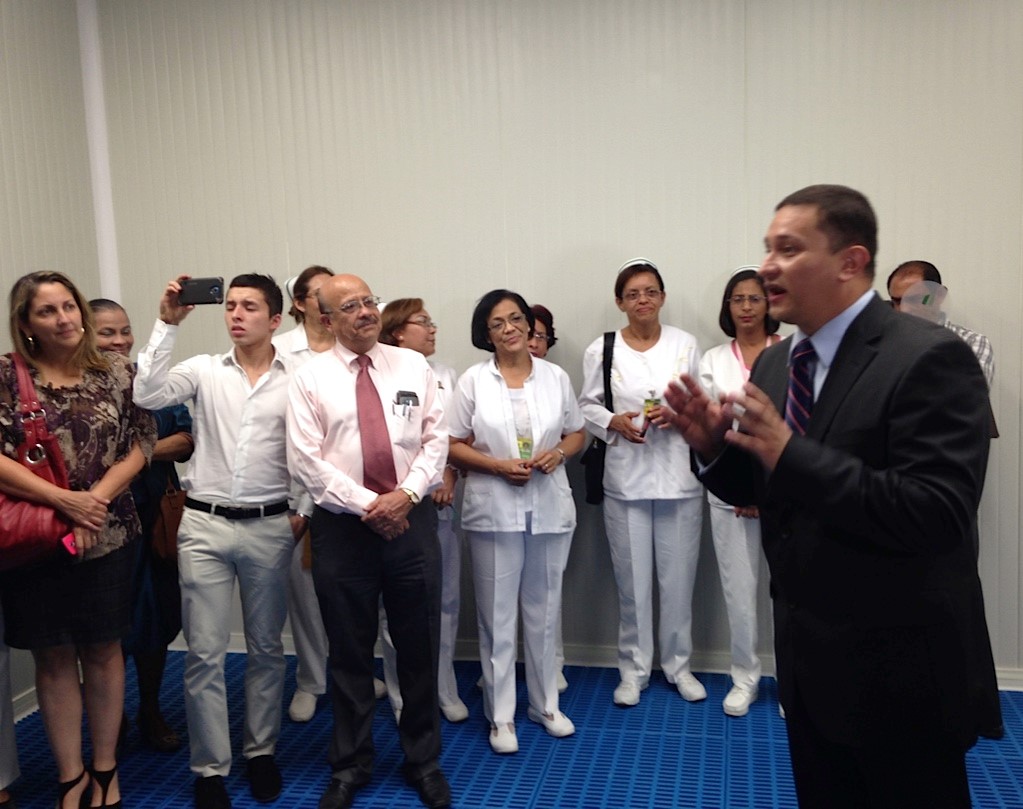

Since 2010, AHF has worked on a myriad of projects, including workshops, consensus conferences, task forces and other undertakings in the Americas. However, all of our projects do not fit into these particular categories. For instance, AHF has awarded various innovation prizes and participated in several awareness initiatives. While these do not fit into our current or typical projects, we are delighted to have been a part of these valuable moments in health care across the Americas.
AWARENESS INITIATIVES
 The Awakening of Rare Diseases in Latin America.
The Awakening of Rare Diseases in Latin America.
Born from the need for worldwide policy and action plans for rare diseases, AHF and ERCAL wish to advance a more equitable advocacy, awareness and research ecosystem in the region by working closely with international, regional and local stakeholders.
Objectives:
1. Increase region-wide awareness on the issues and challenges surrounding rare diseases in the region.
2. Increase access and options for diagnosis and treatment for patients with rare diseases in the region.
3. Partner with medical societies, patient associations, advocacy groups, leading researchers and physicians, non-governmental organizations, and other regional and international stakeholders.
4. Partner with governments and regulatory agencies to prioritize the need for early testing and diagnosis and equal access to treatment, in order to reduce the burden of disease and costs associated with rare diseases.
5. Conduct consensus conferences addressing the existing obstacles and impediments surrounding rare diseases and Orphan Drugs in Latin America.
6. Create a regional report on “The Awakening of Rare Diseases in Latin America”.
7. Develop webinars to expand the awareness and education on Rare Disease in Latin America.
For a summary of the ongoing activities supporting this effort, see the full report here --> ERCAL Activity Report-Web
 Vaccines for All
Vaccines for All
is a new platform that was created to support and promote vaccine use and guide development of national immunization policies. AHF raises vaccine awareness by developing education campaigns and promoting open dialogues on vaccines and vaccine policy.
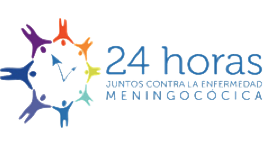 24 hours. Together Against Meningococcal Disease
24 hours. Together Against Meningococcal Disease
is an educational initiative that seeks to inform and bring resources to involve the entire community to help prevent meningococcal meningitis, a devastating, life-threatening and disabling illness that can trigger severe consequences, in just 24 hours, after onset of symptoms. Click here to visit the Facebook page.
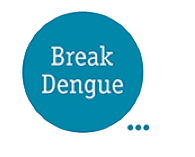 Break Dengue Latin America
Break Dengue Latin America
is a platform aims to build a global coalition that connects all Dengue initiatives and seeks to emulate new ones to reduce and ultimately control Dengue. Through our joint efforts, we will contribute to ending the suffering that causes dengue worldwide. AHF manages this platform in Latin America and our objectives are: 1) Expand the global platform Break Dengue, an initiative supported by the pharmaceutical industry, R&D, non-governmental organizations, and associations, into Latin America; 2) Build a solid network of community-based third parties to advocate for vaccination against dengue; and 3) Raise awareness about dengue.
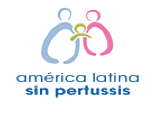 Latin America without Pertussis
Latin America without Pertussis
Is an educational initiative implemented by AHF to address the increasing incidence of pertussis in Latin America by generating awareness about the disease and prevention policies which contribute to the goal that no child dies from pertussis in the region.
Support for the Expanded Program on Immunization – CANAC Region
The Expanded Program on Immunization (EPI) was initiated by the World Health Organization in 1974 with the objective of extending the benefits of new and improved vaccines to countries in need. To meet this challenge, and as part of its Vaccines for All Platform, the Americas Health Foundation initiated a project with the goal of strengthening the management, logistics and infrastructure of the EPI for vaccine introduction in Central America, the Andean Community and the Caribbean. After an analysis of countries in the Region, and following a request from the EPI Manager in Panama, AHF selected Panama as the pilot country for the Project due to the country’s dedication to supporting its EPI as evidenced by multiple vaccine introductions in the EPI in recent years. The current AHF project includes: - Providing one-day, on-site training workshops to ensure that health workers are properly trained on how to administer and manage vaccines, document and record which child receives which vaccines, and decrease vaccine wastage through proper maintenance of vaccine stocks; - Updating existing vaccine storage infrastructure in preparation for new vaccine introduction by exporting and installing in Panama one cold room and eight ice-lined refrigerators for the approved and exclusive use of biological conservation for vaccination programs. - Conducting one-day, on-site training workshops for maintenance technicians on proper cold chain equipment maintenance and logistics in order to decrease vaccine wastage.
INNOVATION PRIZES
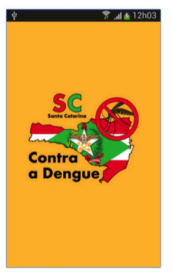 New Dengue App Aids in Reporting Cases
New Dengue App Aids in Reporting Cases
SC CONTRA A DENGUE is the name of the app developed by the winners of the AHF-sponsored Dengue Prizes Brazil 2015. This innovative tool helps citizens to communicate dengue outbreaks directly to ministry of health officials by setting an alert in a map where cases of dengue are occurring. Furthermore, it allows citizens to enroll as volunteers for the clinical trials of the dengue vaccine. The app is available for Android, iOs and Windows. It can be downloaded through Google Play and Microsoft.
Latin American Prizes for Dengue Initiatives
The Americas Health Foundation Latin America, announced the launch of the Latin American Prizes for Dengue Initiatives to support initiatives seeking to combat dengue, a highly endemic disease in the Region. Launched in partnership with Break Dengue, the awards will recognize low-cost initiatives that propose awareness campaigns, surveillance methods or innovative tools to help control the impact of dengue in Brazil, Colombia and Mexico. Applications will be open February 1st through March 20th of 2015. The judging panel will focus on those initiatives that prove to be innovative, concrete and have the potential to be applicable in other Latin American countries. The jury will select one winner per country in Mexico, Brazil and Colombia. Winners will each receive $10,000 to implement their projects within one year.
Brazil: SC Contra el Dengue / SC against Dengue
The SC contra el Dengue project implies the development of an app for tablets and smartphones to help dengue prevention through the possibility of reporting outbreaks of dengue and a video-game to combat dengue from an educational approach. This app aims to serve as a link between citizens and municipal health secretaries, to expedite the Ministry of Health response to outbreaks of dengue.
Colombia: Niños y Jóvenes Lideres Contra el Dengue / Children and Young Leaders against Dengue
This project seeks to train young leaders as educators and promoters of appropriate and necessary prevention for dengue in 10 educational institutions in the city of Cartagena, Colombia. The main idea is to create role models to generate awareness and self-identification with the issue by the leaders. The initiative focus on different games and competitions between the different young leaders, promoting achievements and incentives by helping combat dengue. The project seeks to decrease the conditions that are helping Dengue to spread through prevention practices through lectures, games and information activities in schools developed by a group of educators (songs, recreational activities, competitions).
México: Persistencia de Síntomas de Dengue y Fatiga / Persistence of dengue symptoms and post-infectious fatigue
This initiative aims to study the dengue symptoms that are prolonged, the actual duration of dengue and how this affects in the return to work / study and the quality of life, besides generating additional economic costs, so as to allow people to learn how much can dengue affect, beyond the traditional signs and symptoms.
VACCINE INFRASTRUCTURE
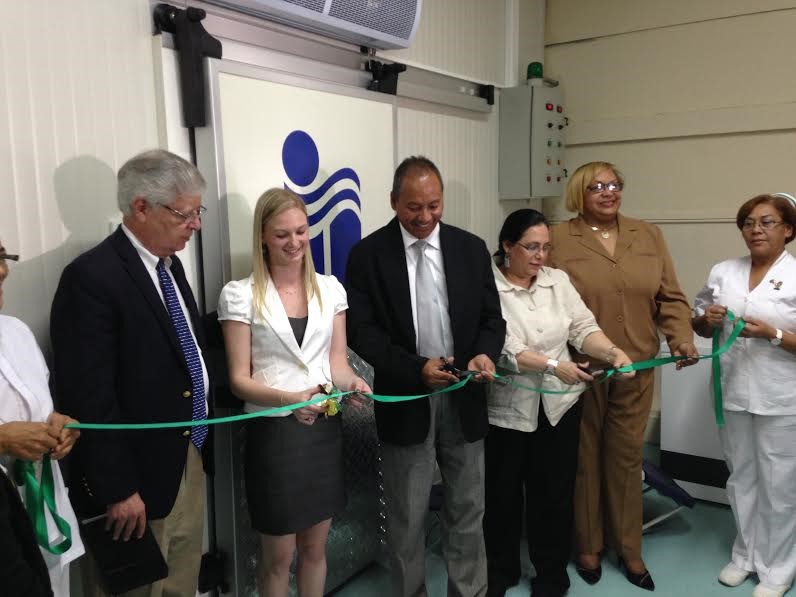 Supporting the Expanded Program on Immunization in the CANAC Region
Supporting the Expanded Program on Immunization in the CANAC Region
The Expanded Program on Immunization (EPI) was initiated by the WHO in 1974 with the objective of extending the benefits of new and improved vaccines to countries in need. The Americas Health Foundation (AHF) is deeply committed to improving health in Latin America through its platform, Vaccines For All, because the only thing standing in the way of the potential of vaccines to dramatically improve quality of life is a commitment to action. To support the expansion of immunization programs and increased vaccination coverage in Latin America, and as part of its Vaccines for All platform, AHF carried out the “Supporting the Expanded Program on Immunization in the CANAC Region” project in Panama City, Panama in 2015. The goal of the Project was to strengthen the management, logistics and infrastructure of the Expanded Programs on Immunization for vaccine introduction in the CANAC Region. In particular, the Project aimed to strengthen the vaccine program management knowledge and infrastructure necessary to support vaccination efforts, particularly in light of multiple vaccine introductions in recent years.
After an analysis of the countries in the CANAC Region, Panama was chosen as the pilot country for the Project due to the country’s dedication to supporting its EPI as evidenced by multiple vaccine introductions in the EPI in recent years. Over the last several years, Panama has successfully expanded vaccination coverage among infants of a number of vaccines, including polio, rotavirus, the pentavalent vaccine (DPT-Hib-HepB), MMR and pneumococcal, while also broadening protection by introducing new vaccines such as hepatitis A, TDaP and HPV in the immunization series. Moreover, AHF received a letter from Panama’s EPI manager specifically requesting additional support for the country’s continued efforts to introduce multiple vaccines in past and future years.
Following an assessment of the state of the EPI in Panama, and to ensure a holistic approach to strengthening the management, logistics and infrastructure for vaccine introduction, AHF implemented the project through three different activities: 1) an on-site, one-day training workshop for health care workers involved in vaccine management and distribution; 2) an on-site, one-day training workshop for maintenance technicians on proper cold chain equipment maintenance and logistics; and 3) updating of existing vaccine storage infrastructure in preparation for new vaccine introduction.
The purpose of the workshops was to ensure that health workers in Panama were properly trained on vaccine management and distribution, including how to administer and manage vaccines, document and record which child receives which vaccines, and decrease vaccine wastage through proper maintenance of vaccine stocks. Both workshops took place during the week of March 9th and was led by Mr. Carlos Guevara and his team from Cadena de Frio. The improvement of vaccine storage infrastructure included installing one cold room (i.e. walk-in cooler) and eight ice-lined refrigerators for the approved and exclusive use of biological conservation for vaccination programs, which was all completed on January 2015. Finally, an official inauguration ceremony attended by Panama’s EPI Director, Itzel Hewitt, as well as members of AHF and a number of Panamanian public health officials and healthcare providers, was held on January 30th, 2015.

